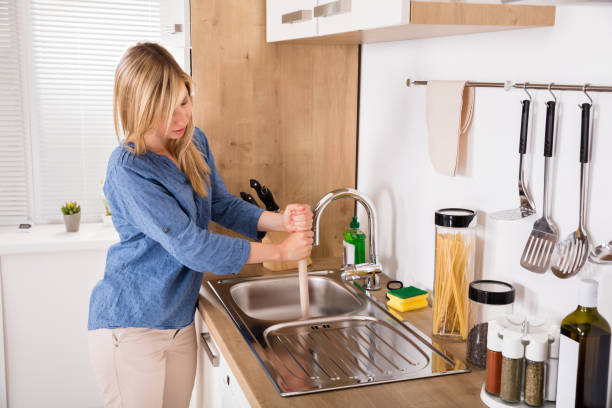Sinks are an essential part of any home, but they can become a nuisance when they get clogged. Whether it’s a bathroom sink, kitchen sink, or laundry sink, clogs can happen for various reasons. In this article, we will explore the science behind why sinks get clogged and how you can avoid it.
- Understanding Sink Clogs
Before we dive into the causes of clogged sink, it’s important to understand the basic plumbing system. Most sinks have a P-shaped pipe underneath them, which is called a trap. The trap is designed to prevent sewage gases from entering the house, but it also collects debris that can cause clogs.
Clogs occur when materials such as grease, food particles, hair, soap scum, and foreign objects get trapped in the trap or the drainpipe. These materials can accumulate over time, leading to a complete blockage.
- Causes of Sink Clogs
Now that we know the basic plumbing system, let’s explore the different reasons why sinks get clogged.
Grease and Oil Buildup: Cooking oils, fats, and grease from dishes can easily solidify inside the drainpipe, causing blockages.
- Food Particles: Food particles that go down the kitchen sink can build up over time and cause clogs.
- Hair: Hair is one of the primary culprits behind bathroom sink clogs. Hair easily tangles around the drainpipe, causing clogs.
- Soap Scum: Soap scum can build up over time inside the drainpipe and trap, reducing the water flow and leading to clogs.
- Foreign Objects: Sometimes, foreign objects like toys, jewelry, and other small items accidentally find their way into the sink, leading to blockages.
How to Avoid Sink Clogs
Fortunately, there are several simple ways to prevent sink clogs.
- Use Sink Strainers: Sink strainers are inexpensive and effective in preventing food particles, hair, and other debris from going down the drain.
- Proper Disposal of Cooking Grease: Instead of pouring grease down the sink, let it cool and dispose of it in the trash.
- Run Hot Water: Running hot water down the sink after use can help dissolve any soap scum and flush out any debris.
- Regular Cleaning: Regularly cleaning the sink and drain with a mixture of baking soda and vinegar can help dissolve any build-up and prevent clogs.
- Avoid Putting Foreign Objects in the Sink: Be mindful of what you’re putting in the sink and dispose of foreign objects in the trash.
Clogged sink are a common problem that can be avoided by taking preventive measures. By understanding the basic plumbing system and the causes of sink clogs, you can take steps to prevent them from happening. Simple habits like using sink strainers, properly disposing of cooking grease, running hot water, regular cleaning, and avoiding foreign objects in the sink can go a long way in keeping your sink clog-free.
5 Common Causes Of A Clogged Sink And How To Prevent Them
How To Unclog A Sink Without A Plunger: A Step-By-Step Guide

